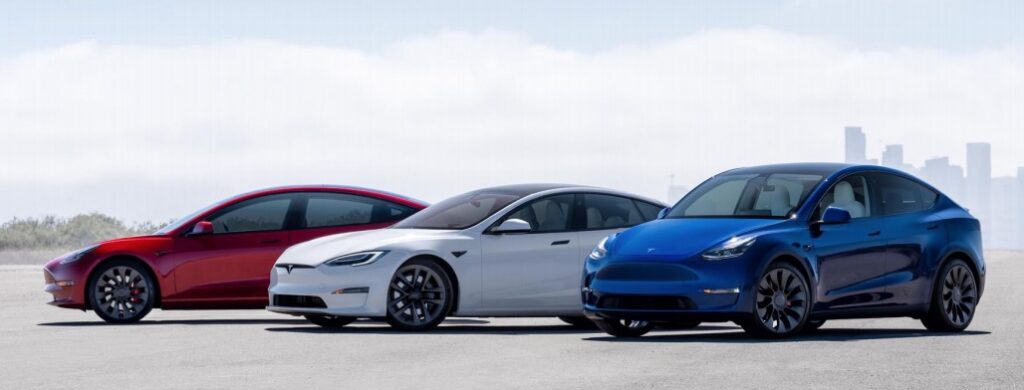
Tesla Leads the Charge in North Carolina’s EV Revolution at 69%

Tesla is driving North Carolina’s swift transition towards EV adoption. According to data from the N.C. Department of Transportation, in the last five years, Tesla models made up over two-thirds of new EV registrations in the state, reports the Greensboro News & Record.
Legacy automakers like Nissan and Chevrolet accounted for only 6.3% and 6% of the state’s EV landscape respectively in second and third place. Traditional automotive giants, Toyota and Honda, are absent from the list, not having hit even 30 EV registrations in 2023.
Data shows out of plug-in vehicles registered in the state since 2019, Tesla leads with a whopping 68.5% (69% let’s round up), making up 29,682 cars.
Tesla’s EV market dominance in North Carolina is hardly surprising. “They were the first ones to have good electric cars,” says Stephen Holland, a UNC Greensboro economics professor. Since its inception in 2003, Tesla, under the leadership of Elon Musk, has been at the forefront of making electric vehicles an appealing and viable option for consumers.
The company’s focus on high performance rather than just eco-friendliness set it apart from its competitors. Tesla prioritized building a robust network of fast-charging stations along with high-performing cars and that Supercharging network is a significant advantage.
Stan Cross, electric transportation policy director at the Southern Alliance for Clean Energy, highlighted Tesla’s customer-centric approach. He noted that Musk, understanding customers’ “range anxiety”, ensured a vast network of Superchargers across all 50 states, making up about 60% of total U.S. fast chargers. These Superchargers, currently exclusive to Tesla vehicles, offer hundreds of miles of driving range in an hour or less.
Despite the competition intensifying, with other automakers increasingly venturing into EVs, Tesla continues to hold a firm grip on the North Carolina market. Approximately 30,000 Teslas have hit the roads over the past five years. In comparison, Nissan and Chevrolet registered nearly 2,800 and 2,600 new EVs, respectively.
In the foreseeable future, Tesla plans to open 3,500 Superchargers to non-Tesla customers by 2024, adding to its current exclusive network. The company is also set to expand its sales centers in North Carolina, strengthening its already dominant position.
This shift towards EVs is pivotal in reducing North Carolina’s greenhouse gas emissions, as transportation is a major contributor to climate change in the state. The state has over 61,000 registered EVs as of March 31, reflecting a 14% increase for the first quarter of 2023. It is well on track to meet Gov. Roy Cooper’s target of achieving 80,000 “zero-emission” registrations by 2025.
Tesla currently is focusing its U.S.-made vehicles for sale in America to benefit from the Biden administration’s federal tax credits. Giga Shanghai production is now shifting to export cars to Canada, allowing a strategic move of keeping cars made with U.S. battery cells in America. All Model 3 trims now qualify for the entire $7,500 federal tax credit for EV purchases. Coupled with state EV incentives, Model 3 can be as low as $26,000 to $27,000 depending on the state.